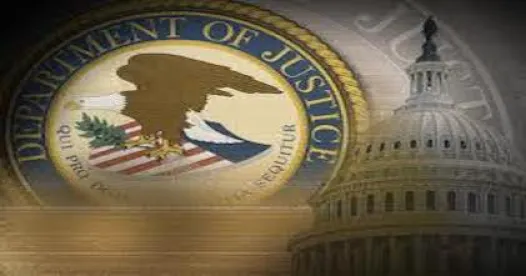In a speech on January 19, 2018, the Department of Justice Antitrust Division’s chief antitrust enforcer referenced a 2016 joint policy statement from the U.S Department of Justice’s (DOJ) and the Federal Trade Commission (the DOJ Guidance), and confirmed that the Division remains committed to investigating employer conduct with respect to no-poaching agreements and that both employers and individuals could be held criminally liable for violations of antitrust laws. The DOJ’s policy with respect to no-poaching agreements is not new, but the DOJ’s clear statement that it intends to treat no-poaching agreements as criminal violations is new.
In the 2016 DOJ Guidance, the agencies announced that criminal sanctions would be appropriate for naked no-poaching agreements between employers. No-poaching agreements are also called no-hire, no-interference, non-solicitation, or no-switching agreements. For convenience this alert collectively refers to these as no-poaching agreements. The DOJ Guidance further explains that if an employee or another private party was injured by an illegal no-poaching agreement among employers, that party could bring a civil lawsuit for treble damages.
Importantly, the DOJ Guidance does not implicate certain types of no-poaching agreements as illegal. No-poaching agreements included in employment agreements, settlement agreements, and merger or acquisition transactions (consummated or unconsummated) may or may not be legal by their terms, but they are not covered by this DOJ Guidance.
If you are navigating the world of no-poaching agreements, here are some other things you should consider.
General Rule
The DOJ Guidance provides that certain naked no-poaching agreements among employers, whether entered into directly or through a third-party intermediary, are unlawful. No-poaching agreements are “naked” if they are separate from, or not reasonably necessary to, a larger legitimate collaboration between the employers.
However, the DOJ Guidance also acknowledges that certain no-poaching agreements might be reasonably related to a legitimate venture and therefore not per se illegal. In other words, where a company can show that a no-poaching agreement is ancillary to a legitimate purpose, the agreement will be evaluated under the rule of reason rather than found to be per se illegal. Under a rule of reason analysis, a no-poaching provision will be found to be lawful if it is not broader than reasonably necessary to achieve the efficiencies from a business collaboration. To support an argument of reasonableness, no-poaching provisions should be narrowly tailored to the scope of a specific collaboration in terms of geography, job function, product group or time period. The broader a no-poaching agreement is, the more difficult it may be to argue it is “reasonably necessary” for the collaboration.
DOJ Civil Enforcement Actions
In the past five years the DOJ has brought several civil actions against companies that entered into naked no-poaching agreements. The final judgments from actions brought against several large Silicon Valley companies specifically excluded certain no-poaching agreements from the per se prohibitions outlined in the final judgments and may therefore serve as examples of provisions that are not per se illegal. The final judgments provided that the companies would not be prohibited from entering or enforcing a no-poaching provision if such provision is:
- contained within existing and future employment or severance agreements with an employee;
- reasonably necessary for mergers or acquisitions, consummated or unconsummated, investments, or divestitures, including due diligence related thereto;
- reasonably necessary for contracts with consultants or recipients of consulting services, auditors, outsourcing vendors, recruiting agencies or providers of temporary employees or contract workers;
- reasonably necessary for the settlement or compromise of legal disputes; or
- reasonably necessary for (i) contracts with resellers or original equipment manufacturers; (ii) contracts with providers or recipients of services other than those enumerated in items 1-4 above; or (iii) the function of a legitimate collaboration agreement, such as a joint development, technology integration, joint ventures, joint projects (including teaming agreements) and the shared use of facilities.
Inclusion of a provision on this list does not mean that such agreement will always be lawful, but rather that such provisions are examples of ancillary restraint provisions that may be lawful if narrowly tailored for their respective business purposes.
Conclusion
You should be aware that no-poaching provisions are per se illegal if they are “naked” agreements with no other business purpose. If you are considering entering into a no-poaching provision that is ancillary to a business purpose, you should make sure that the provision is narrowly tailored to support the business purpose, and be aware that the determination of whether or not a no-poaching provision is legal and enforceable is very fact specific.







 />i
/>i

